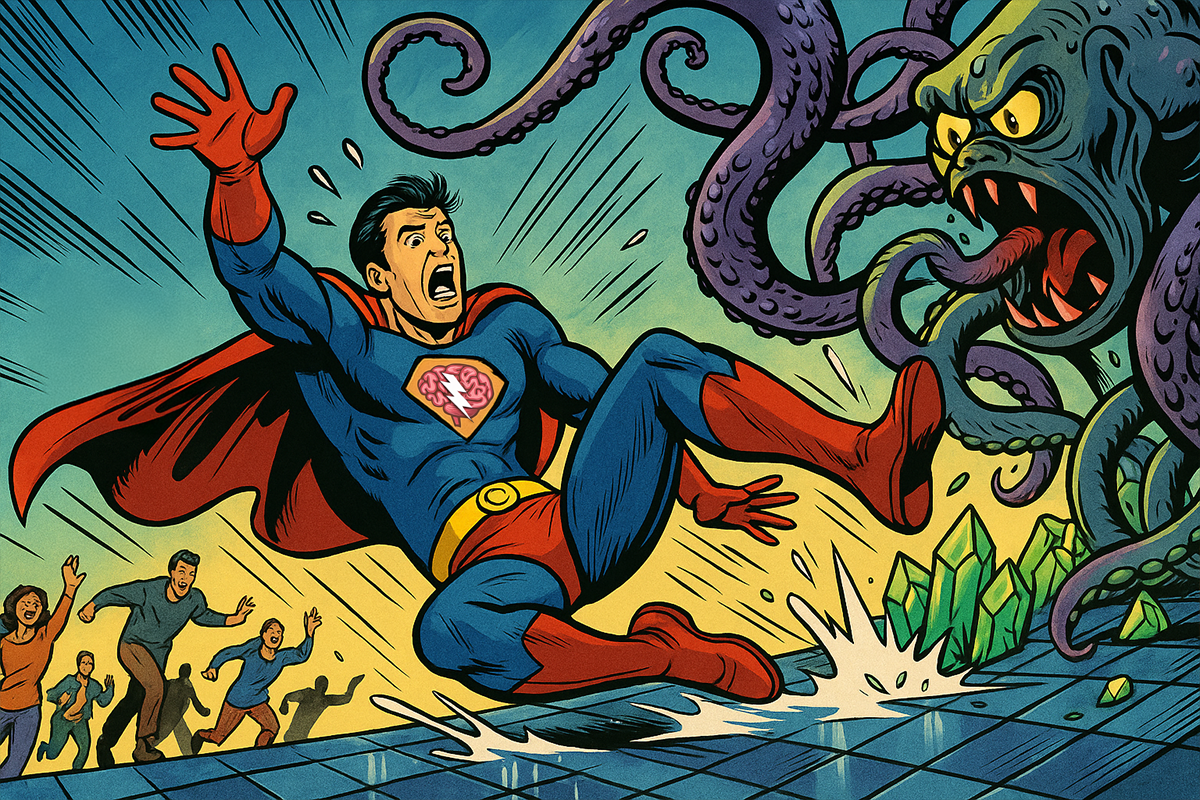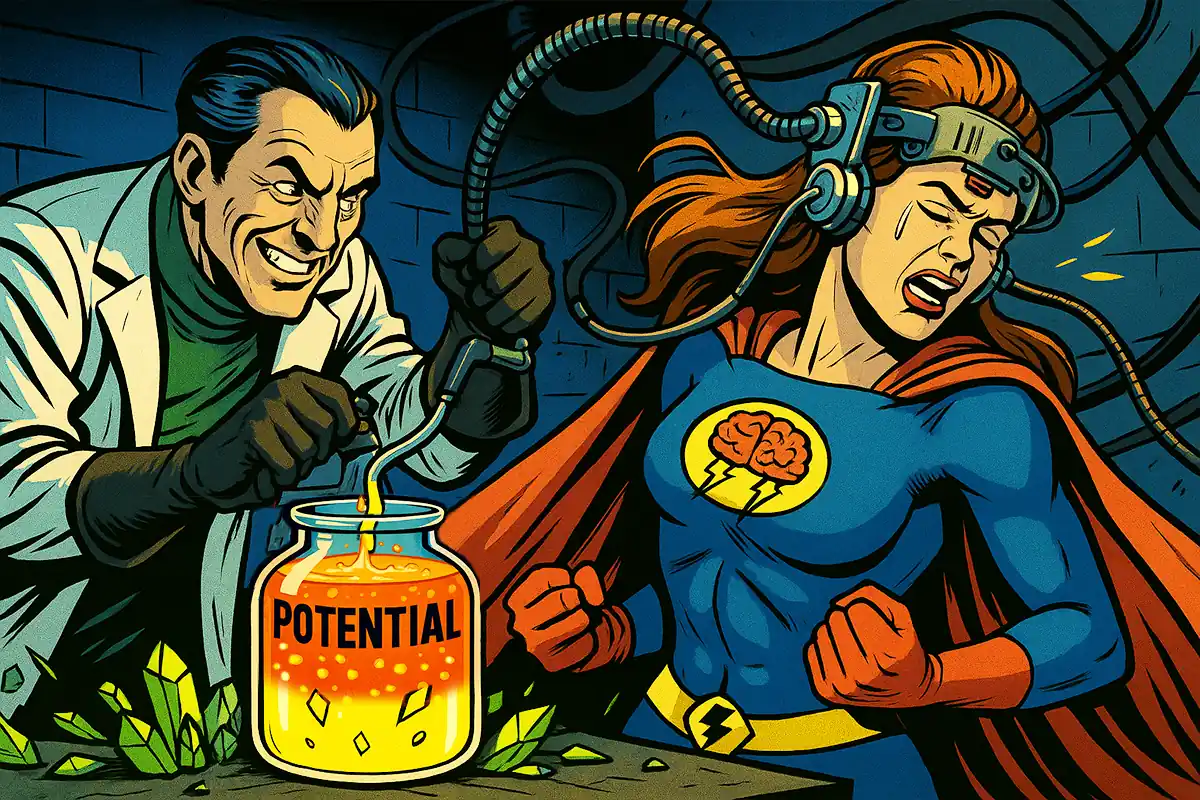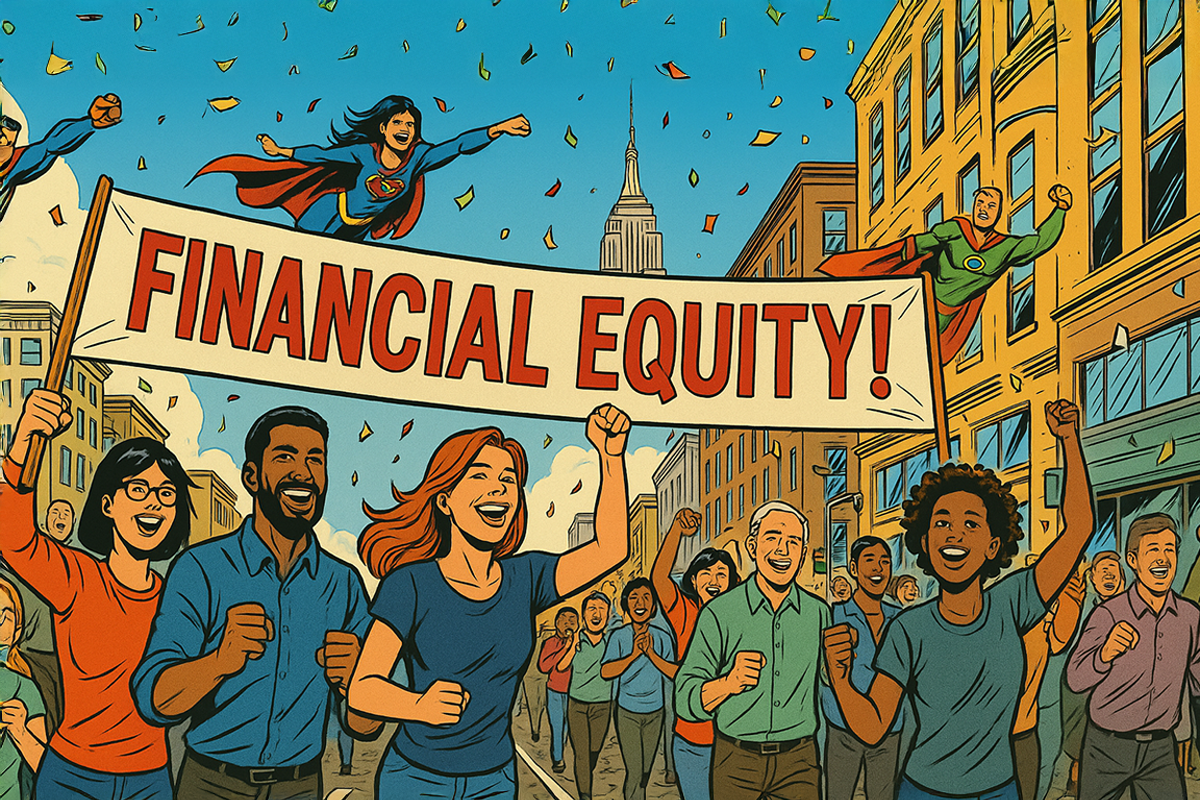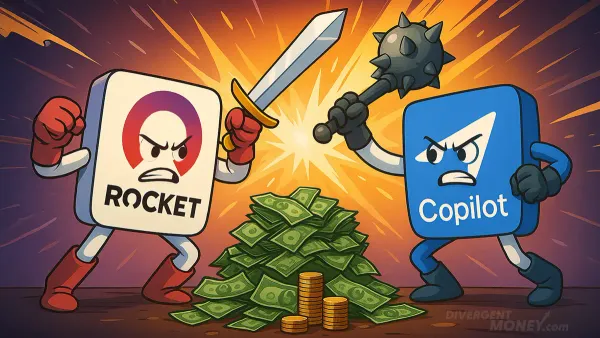Why Divergent Money Exists
High time for a neurodivergent mission statement!

I once paid $35 to be poor.
^ ok, it was more than once.
It started as a bill for about $15, a minimum payment I forgot. I remembered at first, but put it off, then put it off again, and then forgot it.
But the late fee more than tripled it, my credit score took a hit, and the shame lingered for weeks. (Repeat this enough times and the shame gets baked in.) None of this happened because I didn’t care. If you're reading this, there's a good chance your brain, like mine, doesn’t keep time the way the system expects.
For millions of neurodivergent people, money slips through the cracks not from apathy, but from design. We aren’t broken. The ground beneath us is.
Balance Before Power
Every fighter knows: you can’t throw a punch without balance. Power begins with footing.
Money is no different. It isn’t just currency, it’s ground. With solid footing, you can chase a career, build a family, create with freedom. Without it, every stumble becomes a collapse.
For neurodivergent people, financial security is that ground. Yet we’re forced to fight on tilted floors.

Think about what it means to live in that constant imbalance. One missed payment doesn’t just cost money — it chips away at your sense of competence, your confidence in being able to handle adulthood, your trust in yourself. For someone already carrying shame from years of being told they’re “bad with money” or “irresponsible,” these small cracks widen into canyons.
And once you’re ungrounded, everything else suffers. Creative energy dries up because you’re worried about the overdraft. Relationships fray under financial stress. Opportunities pass because the mental bandwidth is gone. Money is not everything, but without secure footing, it becomes the unstable ground that keeps shaking every step you try to take.
The Penalty We Never Chose
Researchers sometimes call it the “ADHD tax.” We know it as the cost of trying to live in a world that was never built for us.
- Adults with a childhood ADHD history earn about 30% less in early adulthood, and are projected to retire with up to ~75% lower net worth — a lifetime earnings gap of roughly $1.27 million in one longitudinal study.
- In a Swedish population study, ADHD adults at the highest risk of loan default were about four times more likely to die by suicide than ADHD adults at low default risk (and more likely than non-ADHD adults with poor credit).
- Nearly 42% of autistic young adults have never held paid work in their early 20s, and in the UK just ~22% of autistic adults are in paid employment.
- Dyscalculia, persistent difficulty with numbers, affects ~3–7% of people.
These aren’t accidents. They are predictable outcomes of financial systems designed for one kind of brain: linear, punctual, relentlessly organized.
Traditional financial advice assumes you can consistently track numbers, remember dates, and follow through on long-term plans. But neurodivergent brains often process time, memory, and numbers in ways that don't align with that expectation. Executive dysfunction makes it difficult to start tasks until they’re urgent. Time blindness distorts the distance between “next week” and “tonight.” Dyscalculia turns even basic arithmetic into noise.
The penalty is not in our character, it’s in the mismatch between system design and cognitive reality.
We’ve built ramps for wheelchairs and captions for videos. But equity has never reached our wallets.
A Hidden Drain on Potential
What does this penalty cost society as a whole? It costs innovation, art, and human potential.
An entrepreneur with ADHD might have the next brilliant idea but can’t keep the books straight long enough to attract investors. An autistic engineer may have the precision to revolutionize a field but can’t navigate the job market’s unspoken social rules, compounded by financial instability. A dyscalculic college student might be brilliant at storytelling but drops out because they can’t pass a math-based financial literacy requirement.

When systems punish difference, talent is squandered. Society ends up paying twice: once in the “invisible tax” that drains neurodivergent households, and again in the lost contributions of people whose brilliance never had a fair chance to grow.
Clearing the Kryptonite
People love to say neurodivergent folks have superpowers. Creativity that leaps across boundaries. Hyperfocus that produces brilliance. Pattern recognition others miss.
But in a world filled with Kryptonite— late fees, rigid deadlines, opaque forms, you’d never know it. Those powers are muffled under constant stress.
Divergent Money exists to clear the Kryptonite. Not to turn us into superheroes, but to give us the same fair footing as everyone else.

This isn’t about lowering standards or expecting less. It’s about designing tools, systems, and advice that work with how our brains operate rather than against them.
Imagine a budgeting app that uses color and icons instead of numbers for dyscalculic users. A calendar system that accounts for time blindness by surfacing the right reminder at the right moment. Financial education that teaches through stories, visuals, and interaction instead of walls of numbers.
These are not luxuries. They are accessibility features. And accessibility always pays dividends — not just for the intended group, but for everyone. Curb cuts built for wheelchairs help parents with strollers. Closed captions help language learners. Neurodivergent-friendly money systems would ripple benefits across society.
Toward Financial Equity
Our mission is simple: to give neurodivergent people a fair and equitable chance in life.
That means tools built for the way our brains actually work. Budgets that don’t assume spreadsheets are universal. Systems that automate what we forget. Education that doesn’t reduce money to “just try harder.”
Financial security is not about becoming rich. It is about balance — the ground under every fight. Without it, brilliance collapses in the scramble to stay upright. With it, possibility opens.

We know from history that equity transforms societies. Schools once assumed dyslexic children simply weren’t smart. Only when systems adapted — with new teaching methods, supports, and awareness — did dyslexic strengths begin to shine. The same shift is overdue in finance.
What’s at Stake
The question isn’t whether neurodivergent people can thrive. We can. The question is whether systems will allow us to.
The stakes are high. Studies show that problem debt is strongly associated with suicide risk: people facing serious debt problems have ~2–3× higher risk of suicide than those without.
When money becomes a source of constant instability, it doesn’t just drain wallets. It drains lives.
But when neurodivergent people gain secure footing, the opposite happens. Energy is freed. Creativity flourishes. Communities benefit. Financial equity isn’t charity. It’s an investment in human capital that’s currently being wasted.
The First Chapter, Not the Last
This is why Divergent Money exists, to expose the hidden penalty, to clear the Kryptonite, to restore footing.
Because balance is the beginning of every fight. And we deserve to fight on fair ground.
This is only the beginning. Our work will span tools, education, and advocacy. But the purpose remains the same: to create systems that stop punishing difference and start unlocking potential.
Neurodivergent brilliance is not a footnote. It is one of the most underutilized resources in society. With fair footing, it could change the world. Without it, we remain in survival mode — paying $35 for the crime of forgetting a $15 bill.
It’s time to build something better. This is chapter one.
You can help by sharing this post, the site, following us on socials. Spread the word! Remove the stigma and help manifest a world that's more equitable and just for all.
Disclaimer: As ALWAYS, this article is for educational and motivational purposes and is not financial advice. Always consider consulting with a financial professional for guidance tailored to your unique situation.




